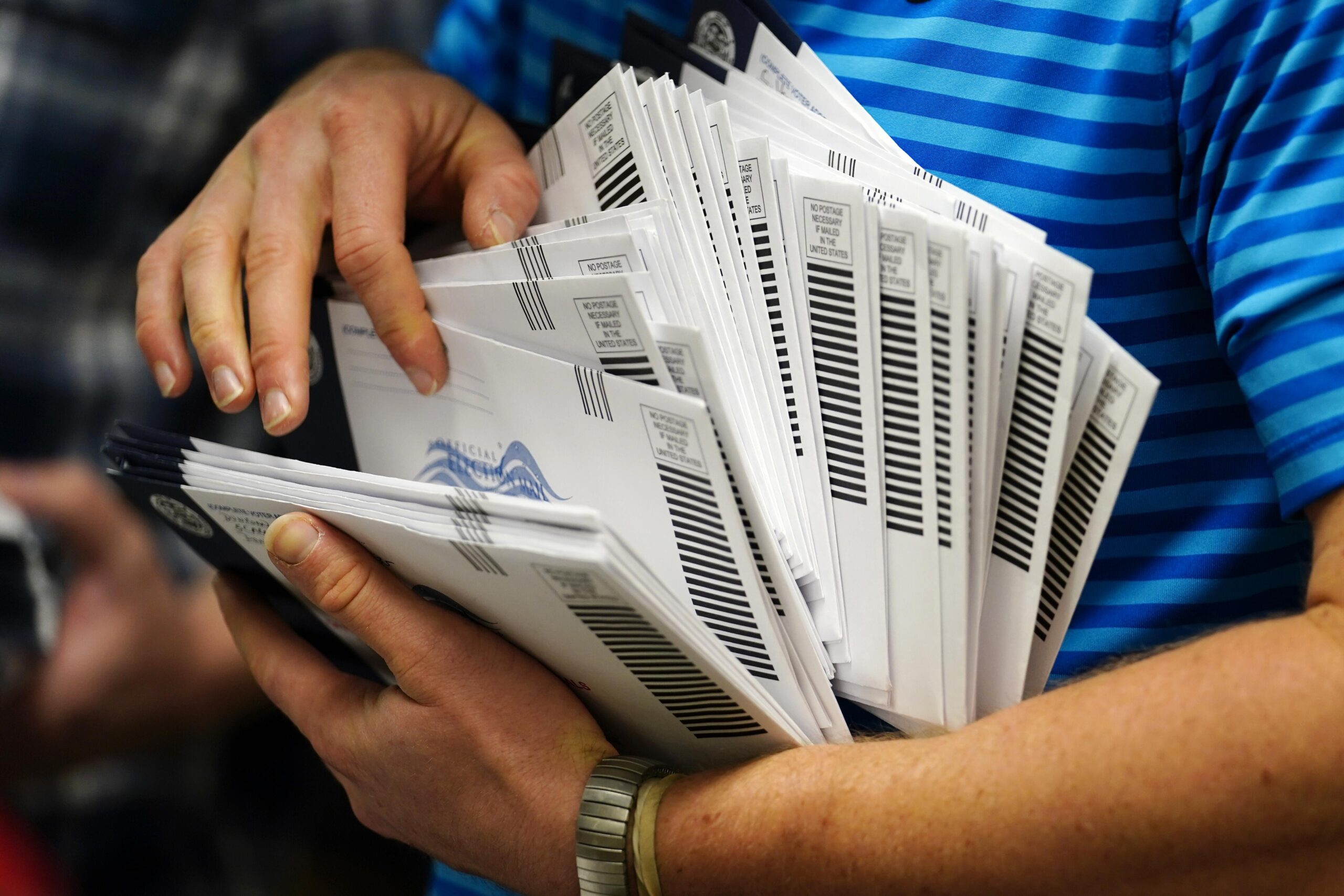Local clerks in Wisconsin referred 13 allegations of suspected voter fraud to district attorneys in relation to the November 2020 election, according to an annual report from the Wisconsin Elections Commission. That’s out of nearly 3.3 million votes cast in the election.
Commissioners approved the document during a meeting Wednesday. State law requires WEC to compile an annual report on election integrity. The latest document includes a total of 41 suspected cases of voter fraud from incidents dating back to 2016. Additional allegations from November 2020 could appear in future reports.
According to the report, clerks in Milwaukee, Waukesha and Brown counties each identified one individual suspected of voting in the November 2020 election by both absentee ballot and in person. It’s the only complaint on the report from Brown County, where Green Bay’s 2020 elections have been the subject of investigations.
News with a little more humanity
WPR’s “Wisconsin Today” newsletter keeps you connected to the state you love without feeling overwhelmed. No paywall. No agenda. No corporate filter.
If a registered voter shows up on Election Day, it should be clear in the poll book whether they already requested an absentee ballot, Elections Commission administrator Meagan Wolfe told members Wednesday. But clerks might not be able to identify someone who has requested an absentee ballot if they ask to register and provide slightly different information.
“So there can be those sort of human processes or those errors that happen where the two records aren’t identified as being from the same person,” she said.
The report also lists six possible incidents in which voters cast ballots in the November election in two different municipalities, and two where voters allegedly cast ballots after being ruled incompetent by the courts.
The report included one allegation of felon voting, though commissioners went into further detail on the topic while reviewing another document. WEC conducts ongoing felon voter audits, a process that involves comparing voters to a list of people under supervision by the Wisconsin Department of Corrections for felony convictions.
An initial evaluation turned up 147 possible matches in the November election, though it’s likely the number of people referred to district attorneys will be much lower based on recent history.
There were 32 initial matches after the April 2020 election. Nineteen have been closed because either the person was legally allowed to vote or there’s no proof they broke the law, while 13 remain under investigation, and six have been referred to district attorneys.
The Elections Commission communicates frequently with corrections officials to ensure clerks can identify ineligible voters, Wolfe said. Clerks are also required to notify individuals who’ve been removed from the active voter list over felony convictions.
Commissioners agreed more should be done to communicate with people who are ineligible to vote while under DOC supervision. Since 2010, just seven people have been convicted of felon voting in Wisconsin, and more educational outreach may lead to more successful prosecutions when voter fraud is committed intentionally, commissioner Robert Spindell said.
He questioned whether there should be some type of rule enacted to ensure DAs notify the commission on the outcome of felon voting allegations.
“I think either legislation or an administrative rule would be in order to try to address what’s going on here because the DAs clearly don’t make this a priority. They seem to be unable to determine whether a violation actually occurred or not,” said commissioner Dean Knudson.
However, other commissioners pointed out that the number of cases of felon voting is statistically insignificant, and no actions were taken.
Commissioners also voted to postpone discussion on how they plan to deal with voters who’ve been flagged as potentially having moved by the Electronic Registration Information Center, a national database of government records. That’s after the Wisconsin Department of Justice contacted the commission Tuesday asking for a closed session to discuss litigation that might result from its decisions.
In September, WEC will address additional cases of suspected fraud identified by ERIC instead of through clerks, Wolfe said.
Wisconsin Public Radio, © Copyright 2025, Board of Regents of the University of Wisconsin System and Wisconsin Educational Communications Board.







